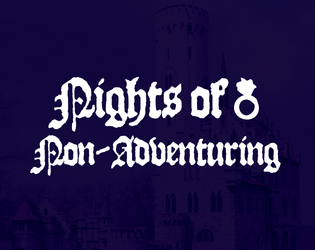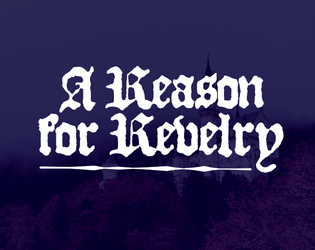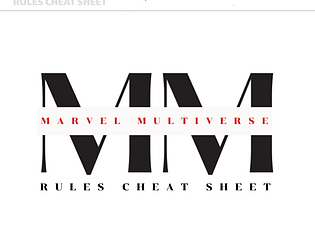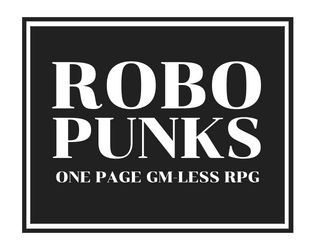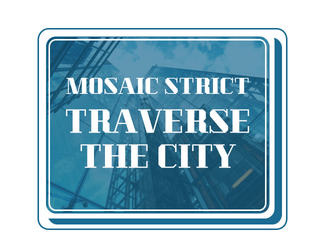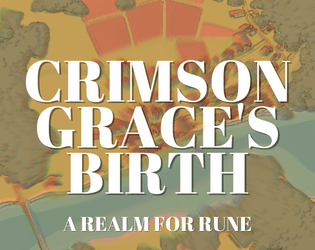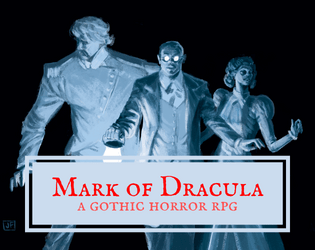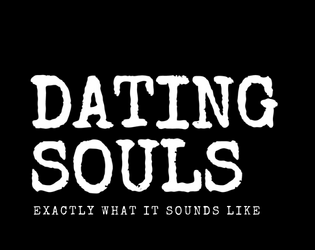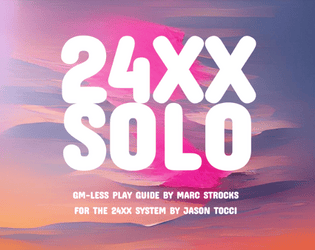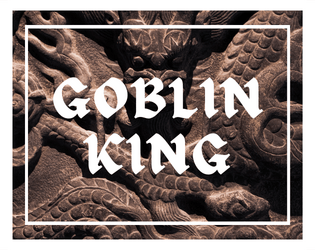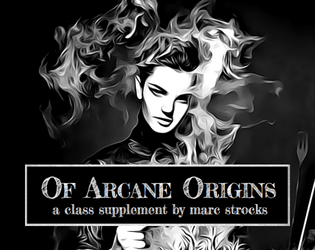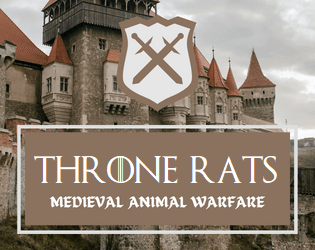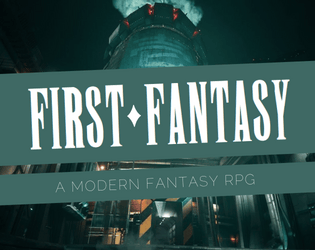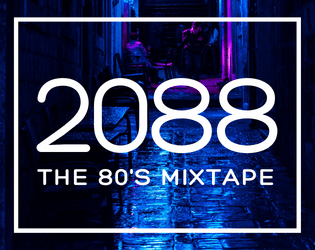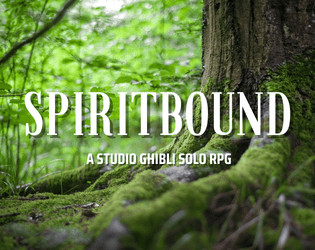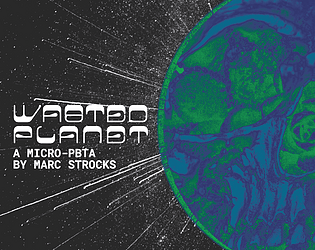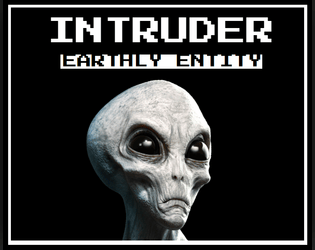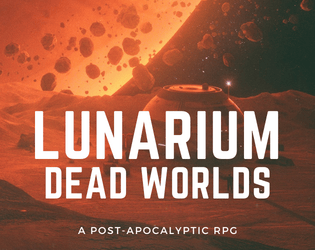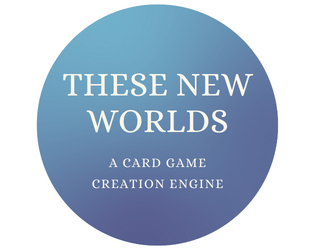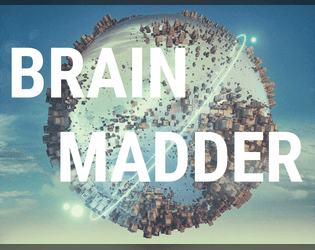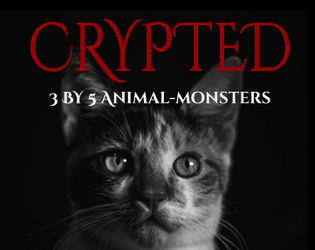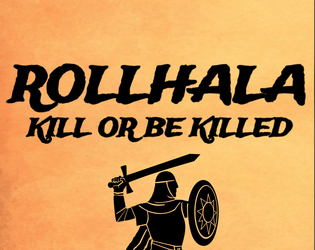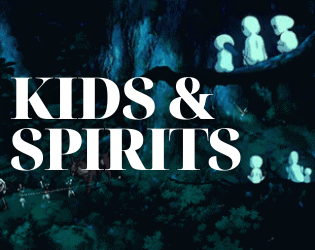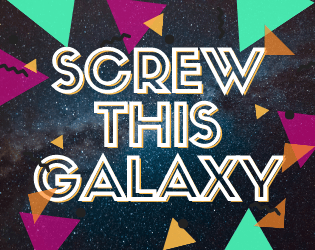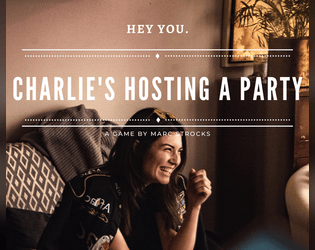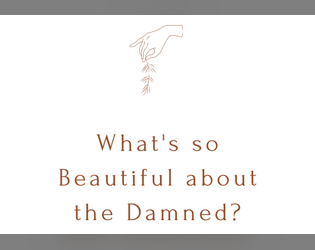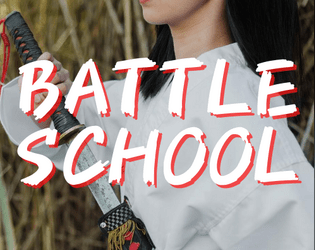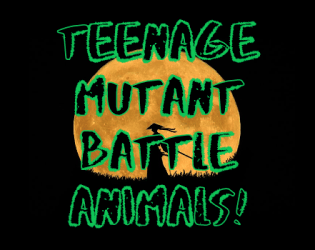Love this! Thank you so much. Very useful and I might make some myself.
Mars Strocks
Creator of
Recent community posts
So you can use the game for short or long-term campaigns. You can get any dice set (d4, d6, d8, d10, d12) and use those or use online versions. Everything in the game is a skill check (or test) so you use roll d6 to see if you succeed. Or, if you are skilled at it, you'll use d8. Even more skilled, d10, etc. Otherwise, it's similar to what you might play with Dnd, etc. A Game Master describes the world for players and presents threats. For this particular setting, picture it like Dark Souls or Elden Ring: there's fights everywhere leading up to big boss battles that can kill you in one or two blows if you're not smart about it. Except it's a modern setting. Since you (and everyone you know) are a brain living in a simulation, you can die and still be rebooted at either sunrise or sunset. Like Scott Pilgrim, Everything Everywhere All At Once, and similar films: your goal is to create deeper human relationships even amidst all the fight scenes. Can I answer any more questions?
On a side point, the "armor saving throw" implies an instance of: you're being attacked and rolling to see whether the attack can make it past your armor to hit, damage enough to hurt you, etc. While in 2400 games, the more general OSR-esque skill system doesn't really frame battles that way. It's more d6 resolving the outcome of the overall situation. I guess you could slot in an armor class there ("If skill roll is over 3, armor is only dented, not yet broken"), but then it just complicates the outcome of the skill roll. Did you get a "Lesser consequence" still from roll, but now it can't be a physical wound? It's adding another layer.
Also, using armor as an added protection from bad outcomes (at the cost of breaking it) makes a lot of sense. It might even be more helpful than just for battle, since you could conceivably use it to deflect/soften any bad roll. It's logical to me that you would trade armor breaking for your own skin NOT breaking. Since, that's what it does in real life. It just has that OSR-esque simplicity: cuts right into what something does in a sort-of binary and succinct way.
Hi there. Thanks for checking out the game. So, if a Path gives you spells or companions, go ahead and take it for free! It's true you may have quite a few cards in front of you if you have lots of spells (+ your usual assets) but I think that's part of the play experience of being a magic user. Spells are just optional tools so feel free to use them as little or as often as you like. If using them makes your gameplay feel overly-complex, that's alright. You can avoid them and focus on other aspects of the game. Thanks for your interest and questions.
Together We Go is the system the work is based on.
You can find more info here: https://itch.io/jam/twj
Hi, thanks for your interest. At this time the Scenes system is somewhat unwieldy to deal with, but yes it's certainly playable. If you like, I can take a look at it and see if there's any urgent revisions that need to be made. Otherwise, I would say as long as you keep your scenes focused and focus on one Scene at a time, you should be good. The game does need more playtesting before it will be released.
Thanks again for your thoughts. Your comments have have driven a lot of my rethinking of things. I'm glad the plot and world elements really shine through. I know some people will miss the RPG elements or feel that's vital to the series. If so, they can make any additions they like. Adding mana points is a great example. With that line of thinking, I wanted my skills cut to the core of what MP is: exhaustion. You're limited by how much you can do before you heal or recover. This replicates that by saying: here's some free opportunities you have to influence the plot. But from then on, it's a roll of the dice -- until you heal/recover. But your skills will probably use your best stat anyway. So you should have some good rolls even then, until luck runs out... Bwahahaha
Also, what a "safe rest" is (or how long) can be decided by your table and vary each time. So all of this to say: story comes first. That's what I felt would make for the most fun, succinct system. It's also inspired by the combat changes from FFVII to FFVII: Remake. It sort of takes those to extremes. Example: everyone has a main attack they can use anytime, even if it's with spellcasting, drawing cards, etc.
Another big idea that could be added to the game is Summoning, or more Spells. But perhaps these will come as DLC later. We'll have to see ;) Thanks again for your comments.
Sure! Yeah you can add a battle system if you like. In true OSR style, this game has no differentiation between combat and other checks. Also, the -2 is only applied when you use your Skills, which are provided based on your Job. Otherwise, you just roll d20 and compare to your stat. For combat, you just roll whatever stat aligns with your weapon. That's currently the only difference. But yeah, as a GM you can always tell your Players to raise or lower their stats to fit your game. As it stands, stat rolls can get pretty dicey. There's high risk. But if you want the players to feel more powerful, sure. Raise any stats or all of them. Thanks for the kind words.
Hi there. Thanks for your interest. I don't believe the character sheet or assets would work in any other format. And the worldbook should be easy to print. But for the rest of the materials:
I added a printer-friendly version of the Rules document combined with the Player Moves. You can use this to print the pages however you wish. I also plugged it into Adobe Acrobat and created a booklet-style pdf as well. This should print correctly. Hope this helps!


